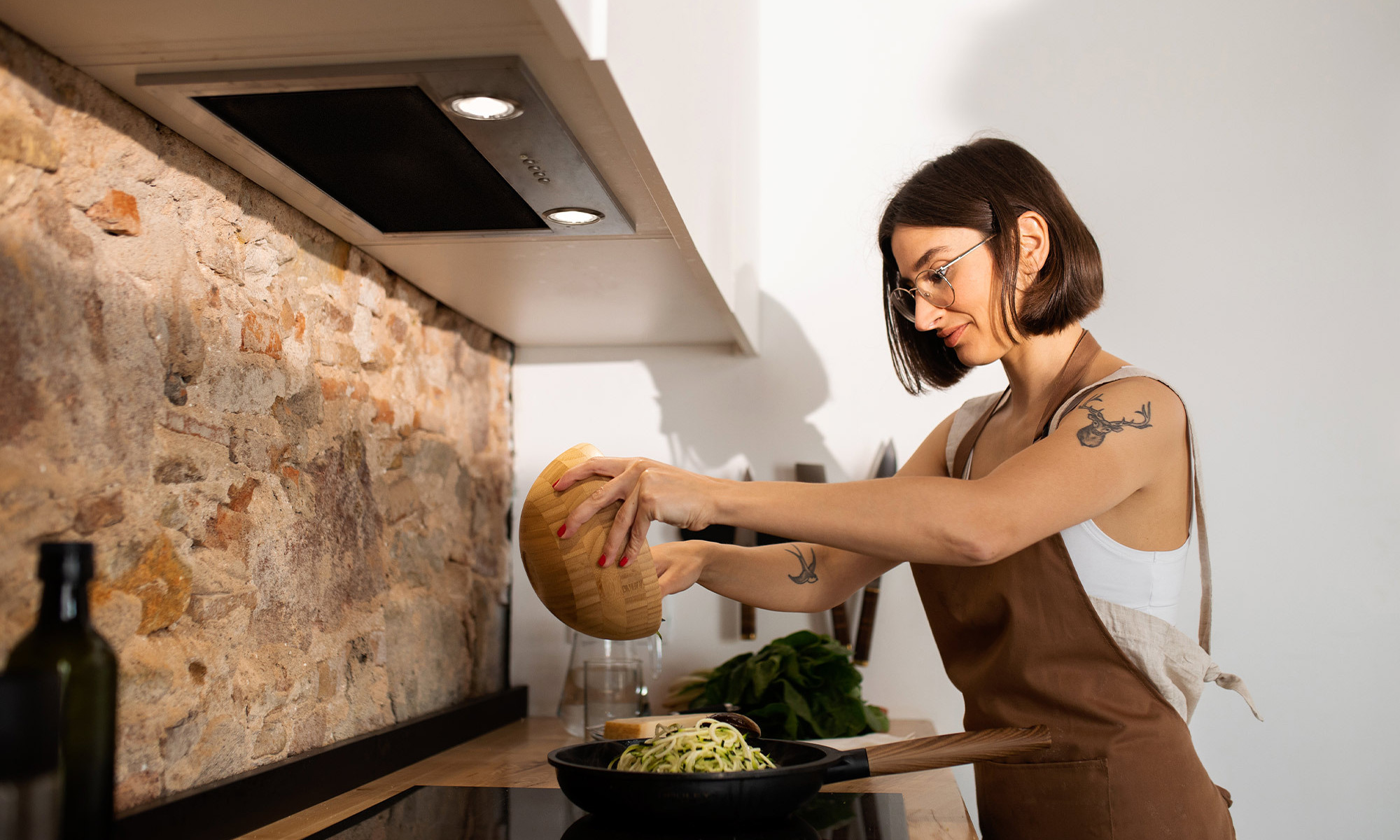The Anti-Inflammatory Spice R.D.s Eat Daily (And 5 Ways They Cook With It)
Plus five different ways they're using it.

Image by Darren Muir / Stocksy October 21, 2022 Our editors have independently chosen the products listed on this page. If you purchase something mentioned in this article, we may When it comes to incorporating herbs and spices into our diet, there's one that consistently sticks out as a powerhouse plant. It's none other than turmeric, an antioxidant-rich ingredient that’s been used for thousands of years to promote well-being. Turmeric contains a variety of curcuminoids, which are bioactive compounds that help deliver these impressive benefits. And its main curcuminoid—curcumin—has been extensively studied1 for its anti-inflammatory actions, antioxidant activity, and ability to reduce oxidative damage2. Many people find that working turmeric into their daily routine helps to ease muscle pain and joint discomfort driven by inflammation, boost gut health, and improve mood.
Advertisement
This ad is displayed using third party content and we do not control its accessibility features.
"Personally, I love seafood; in fact, it's my favorite food. I love curry crab and dumplings from Tobago, the sister island of Trinidad. Tobagonian curry is a combination of turmeric, geera, coriander, black pepper, and garlic—sometimes even more. These spices have incredible antioxidant properties and impart a wonderful bite." —Maya Feller, M.S., R.D., CDN, registered dietitian nutritionist of Brooklyn-based Maya Feller Nutrition This ad is displayed using third party content and we do not control its accessibility features. "My all-time favorite cultural dish since I was young is called bhindi masala, which is a South Asian spiced okra dish. The okra is sautéed with a blend of spices like turmeric, chili powder, cumin, and dried mango powder, which brings a burst of flavor in every bite. This dish has been a weekly staple since it can be an enjoyable way to incorporate plant-forward meals and celebrate cultural flavors in my household." —Huma Naz, R.D., clinical dietitian in Chicago, Illinois "One of my favorite cultural dishes is eggplant curry. This flavorful dish is loaded with spices, like turmeric and garlic, that offer beneficial antioxidants and are great for gut health. It's also a great way to work in a plant-based dish that's satisfying in both taste and texture!” —Jessica Keene, M.S., R.D., SNS, school R.D. and regional field manager of the San Diego Unified School District, San Diego, California This ad is displayed using third party content and we do not control its accessibility features. 4. "Personally, I love Middle Eastern cuisine, especially Lebanese, Persian, and Turkish. They incorporate an abundance of flavorful spices like saffron, sumac, and turmeric—loaded with an array of antioxidants plus fiber-rich, nutrient-dense vegetables, dried fruit, legumes, whole grains, nuts, and seeds. If you are vegan or plant-based, it's easy to find several menu options that are both delicious and nutritious when you dine out. So it's a no-brainer for me because my delicate GI system works best on a high-fiber diet." —Jennifer Hnat, RDN, mindful and intentional eating expert "As a longevity dietitian, I help my clients to optimize their metabolism with a diet that includes a lot of herbs and spices. My favorite herbs to use are rosemary, oregano, thyme, cilantro, and parsley. Additional flavors from spices like ginger, turmeric, and pepper contain powerful anti-inflammatory compounds that are beneficial for digestion as well." —Ella Davar, R.D., CDN, integrative dietitian, health coach, speaker, and author This ad is displayed using third party content and we do not control its accessibility features.Advertisement
Advertisement
In Middle Eastern cuisine:
Advertisement
The takeaway.
Advertisement
This ad is displayed using third party content and we do not control its accessibility features.

 ShanonG
ShanonG 

































